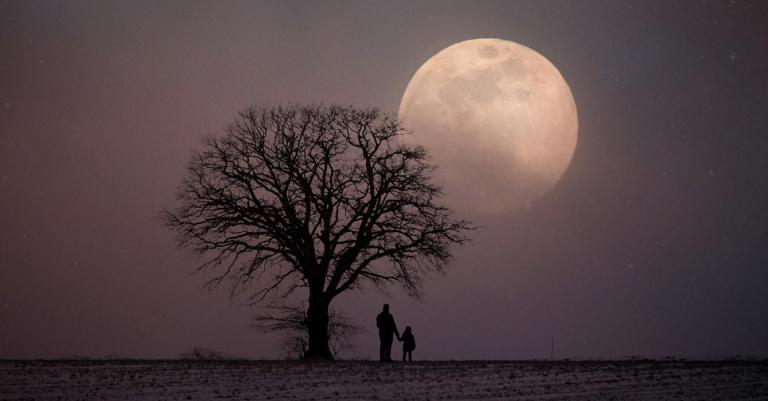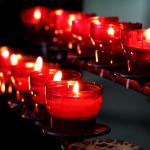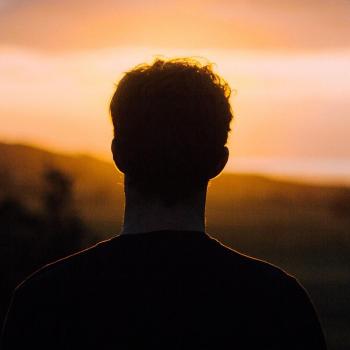
This is Part 7 of my ‘Faith In The Fog’ series on my experiences with doubt, skepticism, mental health and forging a different kind of faith.
< Part 6: Good Religion, Bad Religion
Part 8: Mindfulness and the Doubting Christian
It’s easy to trust in God when you feel sure that he exists.
And it’s easy to feel sure that God exists when your faith is built upon a solid foundation of beliefs.
I used to feel certain about my beliefs. It felt great. No matter what happened, I knew that God was on my side and I had the answers to life’s biggest questions in my back pocket.
But then questions and doubts started hammering at the foundations. The idea that I held the one set of eternally correct answers grew increasingly implausible, and I began to notice how people can do horrible things when they hold their religious beliefs above all else.
Before long, my belief system had collapsed and I was left standing the rubble, straining to see through the clouds of dust.
I knew this wasn’t the end of my faith.
At least, I hoped it wasn’t.
Despite its many failings, I loved Christianity. It was still my spiritual home. Its stories and traditions continued to stir something in the depths of my soul, and nourished me in ways I couldn’t fully articulate.
I didn’t need or want to ditch the whole thing. I was still satisfied that the Christian worldview as I understood it was not only scientifically viable, but psychologically and sociologically beneficial. But I could no longer hold onto beliefs with a clenched fist. I had to find a way to cultivate an open mind, and learn to live with the possibility that I could be barking up entirely the wrong tree.
If I was to build a new kind of Christian faith, it would have to be built on something other than a static set of beliefs.
I imagine that some people achieve this shift in mindset with the serenity of a swan, gliding through the gently rippling waters of a river estuary into the calm expanse of the open ocean.
My experience was more like that of a seagull caught in a water spout. One minute I was high above the waves, soaring with blissful anticipation towards a glowing orange sunrise. The next minute I found myself being sucked into a spinning vortex, squawking and flapping in frenzied confusion, until only the faintest glimmer of that glorious sunrise was visible as I was dragged down into cold, unfathomable depths.
I am a worrier, you see. Uncertainty scares me. I have a deep need to feel secure, so I crave definitive answers and neatly packaged explanations. When I lost faith in my belief system, my anxious mind began searching frantically for something concrete it could grab a hold of.
I struggled to accept basic Christian concepts, not because I believed they were definitely false, but because my anxious mind couldn’t cope with the possibility that they might be.
God as a loving father? What sort of father can’t even be bothered to prove his own existence?
God has the whole world in his hands? But what if he doesn’t? What if there’s no point to any of it??
God hears our prayers? But what if he’s a figment of our imagination? What if we’re actually all alone in the universe???
I spent an absurd amount of time fretting over questions like this. It was exhausting, and completely pointless. The problem wasn’t that I didn’t have the answers. The problem was the fear and emotion that I had attached to concepts and ideas that I had absolutely no control over.
Once I could get past my fear, I could start to rebuild the simple trust that I so longed for.
I still have my drowning seagull moments. And they’re still pretty terrifying, I won’t lie.
But I now realise that the anxious, over-thinking part of my brain does not have to have the last word when it comes to faith.
Fear makes me inward-facing, defensive and closed-minded, so when I feel afraid, I’ve learnt not to pay too much attention to myself. If I can ignore it for long enough, the fear tends to dissipate and I feel my mind and my heart opening up again. Hope starts to trickle back in to the deepest wells of my soul, and I feel the child within me cautiously stretching out her hand.
Faith is the realm of stories and mystery; music and art; poetry and metaphor. If I can bypass the skeptical, fearful part of my mind long enough to be open to these things, they can speak to the deepest parts of me. They can fill me with life like an invigorating breath of sea air and quiet my soul with a peace that transcends all understanding.
This doesn’t mean I don’t think about my faith. I am simply acknowledging that I can never really obtain objective knowledge about a subject like God, no matter how much time I spend thinking about it. This is all faith has ever been, really. Not a concrete system of beliefs, but a childlike trust in something we will never fully understand.
Reality is what it is, regardless of what I believe about it. So rather than endlessly scrambling for an intellectual grasp of God, I am better off putting my energy into being awake and present in the here and now, with an open mind and an open heart. This moment is where the life is, and this moment is all I really have any control over. And if God does exist, this is where I will find her.
< Part 6: Good Religion, Bad Religion
Part 8: Mindfulness and the Doubting Christian
Read the entire series here.
Image via Pixabay
















